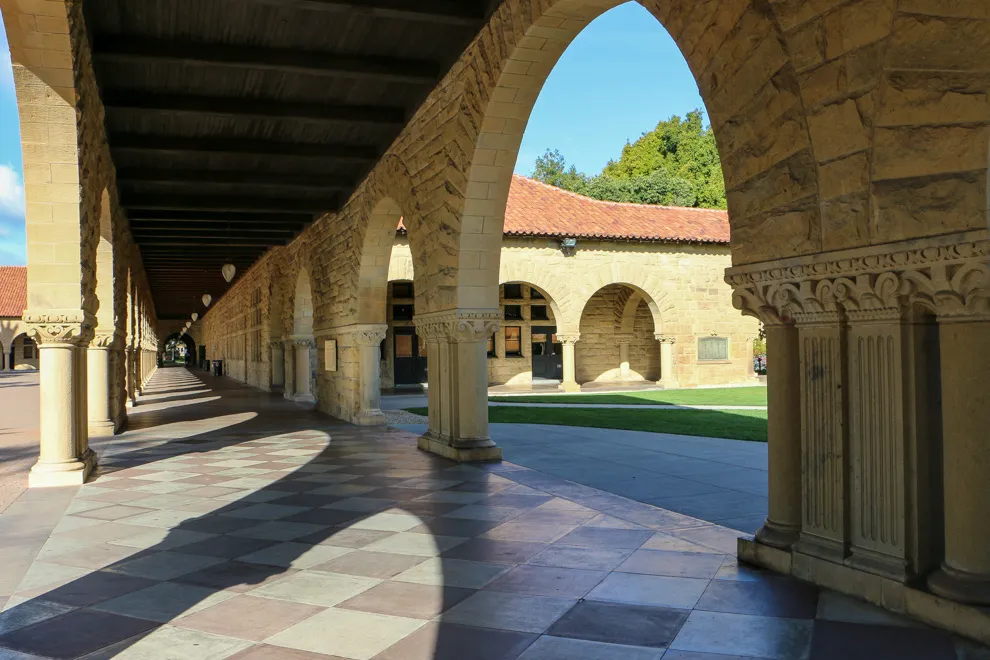A mobile app that offers a range of tools and lessons to supplement U.S. military training earned a team of Stanford graduate students the $30,000 top prize at the nationwide Hacking4Defense competition sponsored by the U.S. Department of Defense (DoD) in early July.
Andrew Powell MBA ‘20 MA ‘20, Phil Steifel JD ‘21 MBA ‘21, Sasha Seymore JD ‘20 MBA ‘20 and Samuel Lisbonne MS ’20 built the product in Stanford MS&E 297: Hacking4Defense. The program encourages students to apply technology to national security challenges.
The venture was inspired by a similar app called Learn to Win, designed by Seymore and Powell, that enables football players and other athletes to access playbooks, game plans and other materials to train more efficiently. When Seymore noticed the rapid growth of sports learning technology on the basketball team at the University of North Carolina – Chapel Hill, he and Powell created the digital micro-learning platform now adopted by more than 400 athletic programs around the country.
During the course, the students visited Beale Air Force Base near Sacramento and Tinker Air Force Base in Oklahoma, learning that the Air Force still largely employed outdated training methods and digital programs, wrote Stiefel in an email to the Daily. Two group members were Navy reservists, as members of the military reserve force. Through the visits they made and their own experiences, they pinpointed an accessibility issue — military training was largely inefficient and, for Seymore, involved “stacks of paper qualification cards” — motivating their app.
The students modified the initial software, Learn to Win, to allow commanders to disseminate training materials and content. This ease of instruction would rectify many of the systemic problems the students had pointed out earlier.
“During the 10-week H4D class, we spent the first five weeks exploring other potential projects to improve Air Force training that didn’t use the app, but when a senior Air Force officer told us that we would ‘make eyes moist with tears of joy’ if we used the app to help with certain aspects of Air Force training, we decided to focus exclusively on that for the remainder of the course,” Stiefel wrote to the Daily.
The app received overwhelming acclaim upon release. Afterward, the team decided to submit the idea to the national Hacking4Defense competition in San Francisco, where they beat out stiff competition from over 200 other groups to advance to the final round. After presenting their work to an audience of Silicon Valley venture capitalists, the students were awarded the top prize of $30,000, which they plan to use to continue advancing the app.
“We have applied for funding through the Small Business Innovation Research program to explore integration of machine learning-enabled adaptive learning technology, develop a version of the software tailored to Air Force users, conduct testing of the software on Air Force bases, and clear the cyber security hurdles leading up to DoD implementation,” Stiefel wrote.
He added that the team has “opened discussions” with United Airlines, the National Geospatial-Intelligence Agency, the U.S. Navy and the U.S. Marine Corps regarding ways they could potentially use the app.
“These entities are not using the micro-learning training vector in a significant way, so they’re pretty enthusiastic about it,” Stiefel wrote.
Contact Sneha Revanur at sneharevanur ‘at’ gmail.com.
